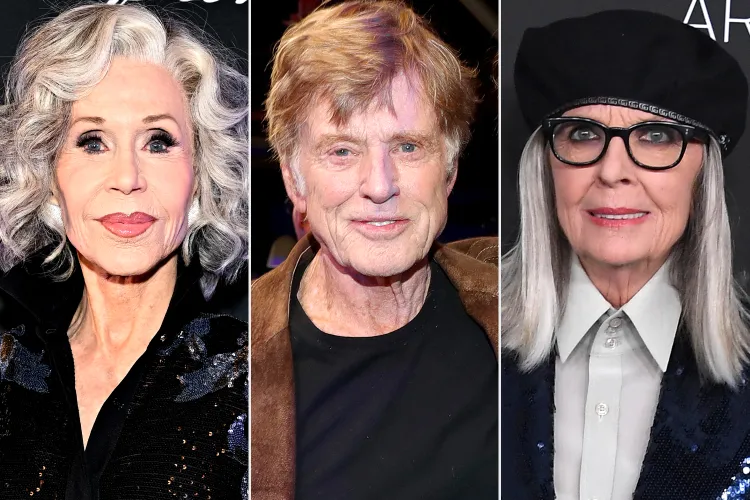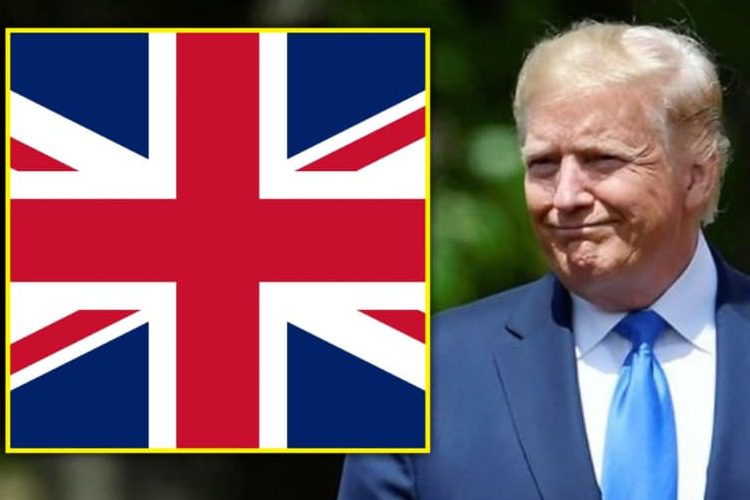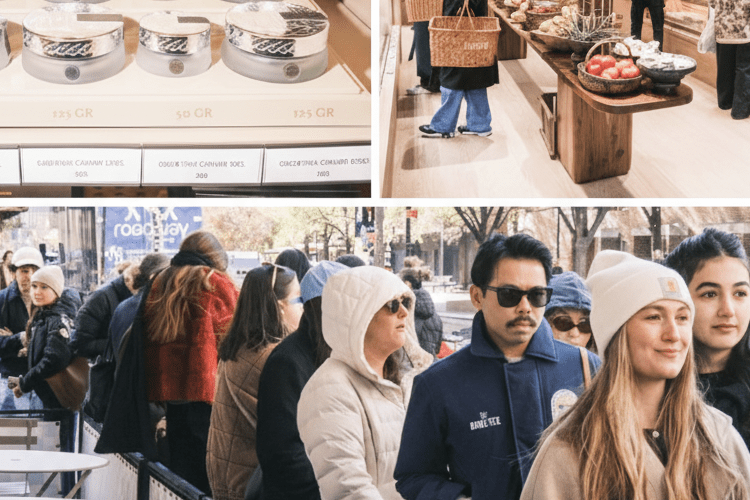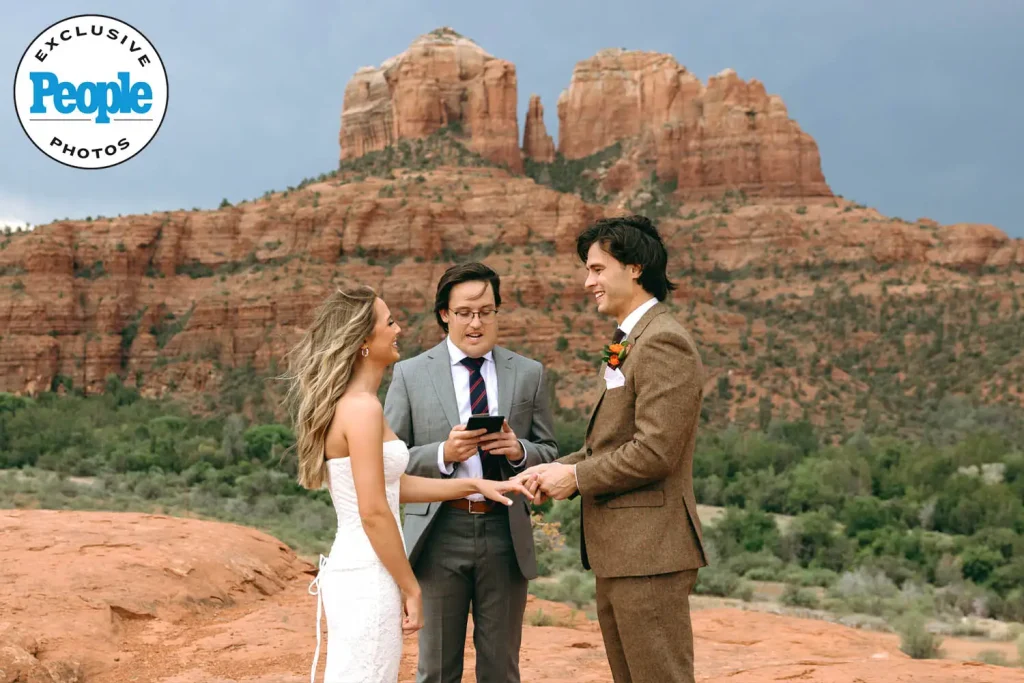Jane Fonda Says This Year Has Been “Painful and Lonely” After Losing Robert Redford, Diane Keaton, and Other Hollywood Icons — Inside Her Emotional Reflection on Aging, Legacy, and Outliving Friends
Jane Fonda has never shied away from speaking her truth. Whether she was standing on protest lines in the 1970s, reinventing herself in 1980s workout tapes, or speaking fearlessly about aging in recent interviews, she has always met life with candor. But now, at 86, Fonda is confronting one of the most difficult realities of growing older — outliving the people who shaped her world.
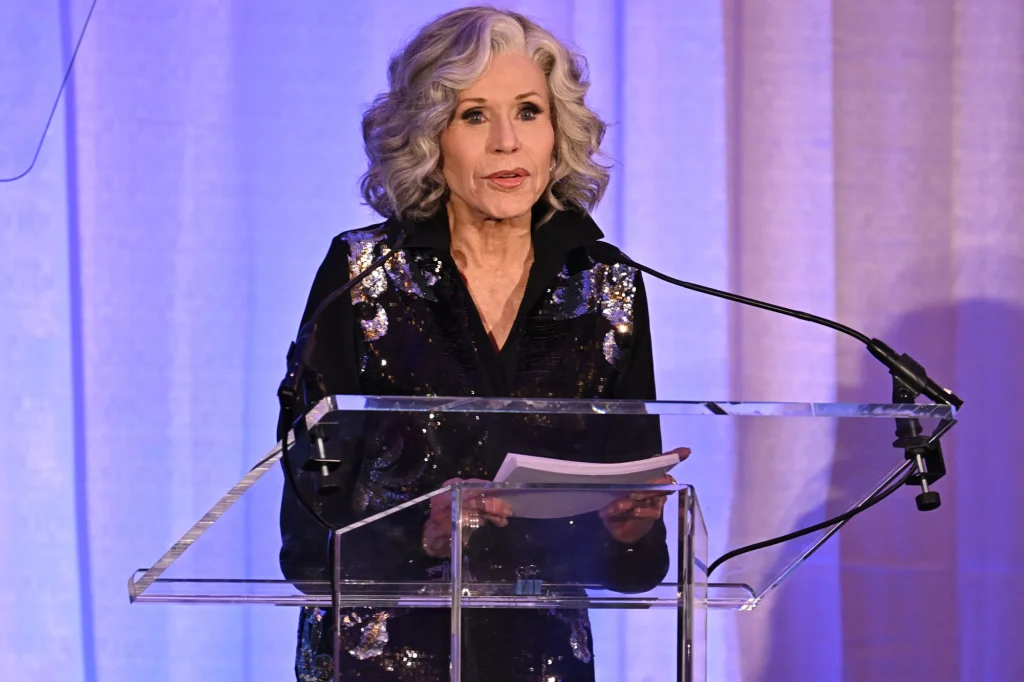
In a deeply emotional moment during a recent conversation, she admitted that this year has been especially hard. “It’s been a tough year,” she said, her voice steady but heavy. “I’ve lost some of my closest friends.” She referenced Gene Hackman, Robert Redford, and Diane Keaton — names that aren’t simply colleagues, but icons who helped define entire eras of American cinema. Even mentioning them, Fonda acknowledged, sends a ripple of disbelief through the Hollywood community that grew up admiring their work. For her, though, the loss is personal, layered with memories and private conversations the world will never see.
Fonda did not specify the exact timeline of each loss — Hollywood losses are often gradual, sometimes measured more in fading public appearances than in obituaries — but her meaning was unmistakable. She is watching her generation disappear. She has spoken publicly before about feeling like a witness to the end of something beautiful, watching the golden age of Hollywood fade not on the screen, but in hospital rooms and quiet private funerals.
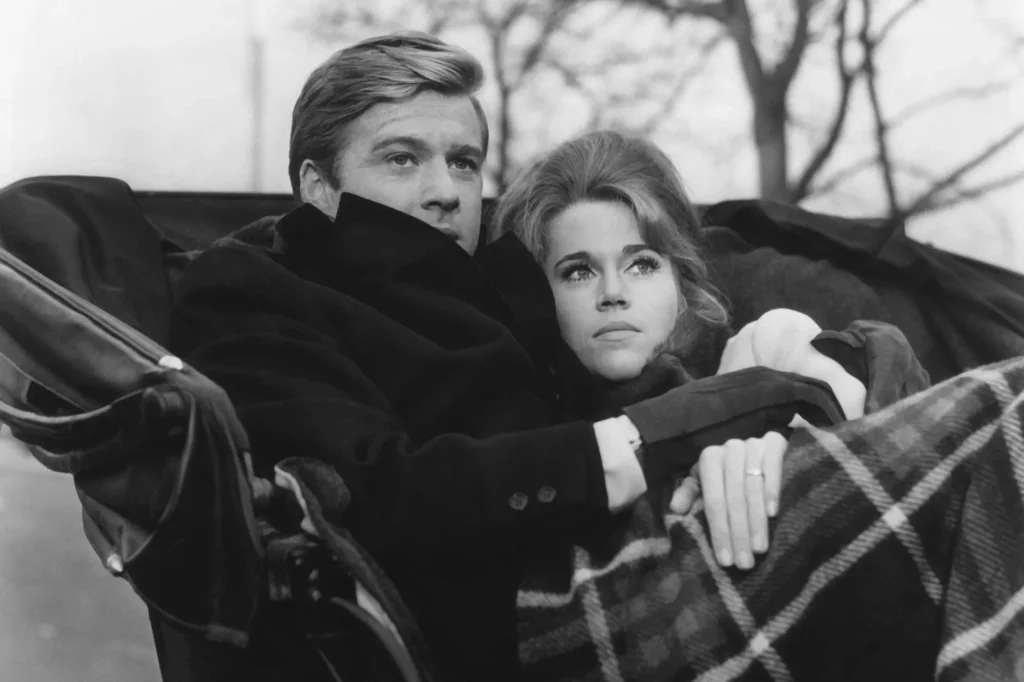
Jane Fonda met Robert Redford more than sixty years ago. Their chemistry was immediate, eventually immortalized in films like “Barefoot in the Park” and “The Electric Horseman.” They were not romantic partners in real life, though the world often assumed they must have been. Instead, they shared something quieter and perhaps deeper — a professional trust, a creative intimacy, the kind of partnership actors rarely find more than once in a lifetime. In interviews over the years, Fonda frequently called Redford “my favorite leading man.” He famously joked that she talked too much during filming. She countered that he never talked enough. It was a lifelong teasing friendship that audiences adored because it felt real beyond the screen.
The thought of losing him breaks something open in her voice. It is not just grief for a person — it is grief for history, for a piece of herself that only he understood. When she speaks about him now, she uses the kind of past tense that signals acceptance but not peace. She doesn’t perform her pain. She simply allows it to exist.
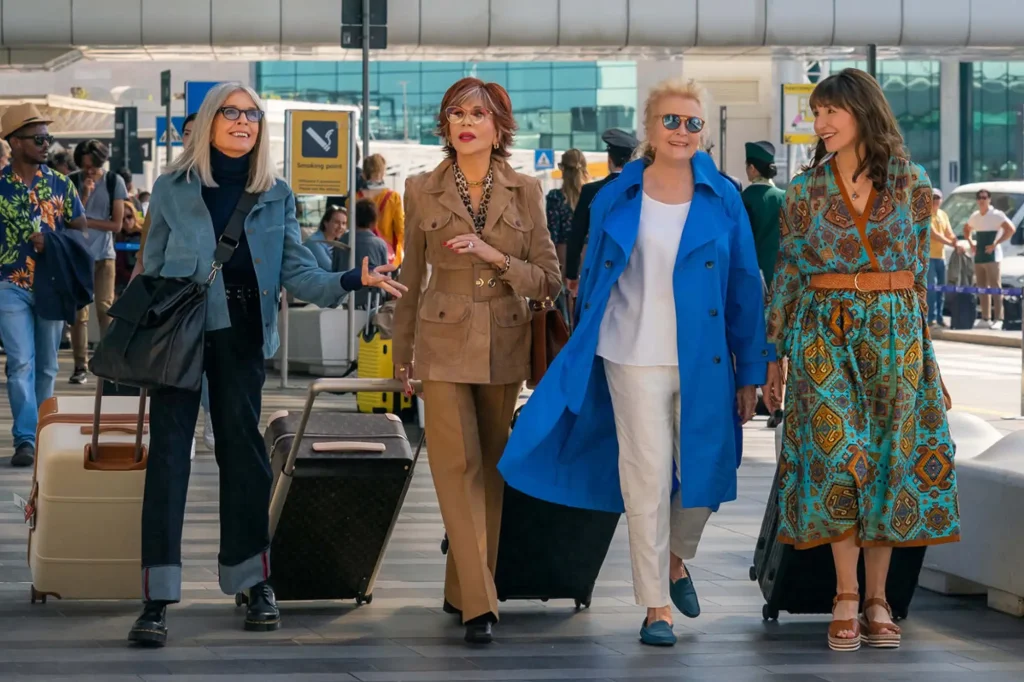
Her grief surrounding Diane Keaton carries a different emotional weight — one that blends admiration with a kind of survivor’s loneliness. They were not inseparable friends in the way tabloids might frame two actresses, but they were part of the same constellation — powerful women who rewrote Hollywood’s expectations in the 1970s. Each refused to shrink themselves for men or for studios. Each became a symbol of strength, humor, and creative independence. Fonda has long praised Keaton’s fearlessness and individuality. The idea of her being gone, whether from public life or simply from Fonda’s daily circle, feels like another reminder that the landscape is shifting under her feet.
The third name she mentioned, Gene Hackman, is one she speaks about with enormous respect. Hackman retired from acting years ago, withdrawing from public life to quietly enjoy being out of the spotlight. But for Fonda, he embodied the kind of Hollywood masculinity that wasn’t based on ego or flash — it was rooted in talent. She starred with him, worked beside him, and recognized in him the same creative fire she carried. Losing him represents another thread in a tapestry being slowly pulled apart.
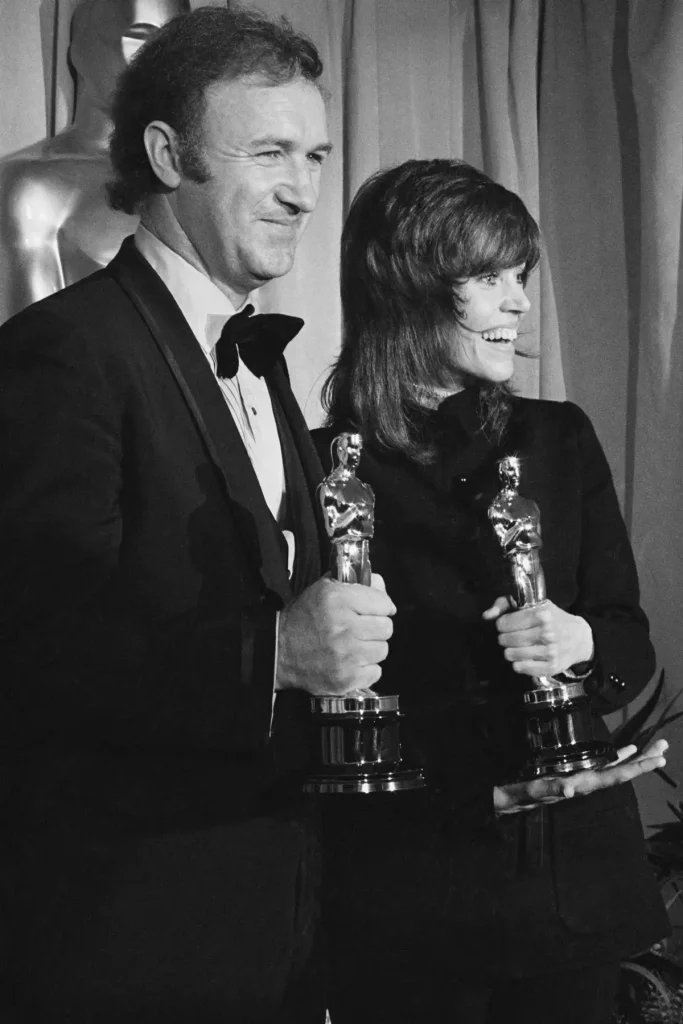
Fonda has been outspoken about aging. She calls it “a privilege denied to many.” She has said more than once that she isn’t afraid of dying, but she is afraid of losing time — not time to work, but time to love. What strikes her hardest now is not physical decline, but emotional vacancy: the empty seats at the table at reunions that will never happen again. She once compared elderly friendships to an endangered species — not because they disappear at once, but because they slowly dwindle until one day you realize you are the last one standing.
The past year forced Fonda into a kind of emotional inventory. She reflected not only on her friends’ deaths but on their legacies, the work they left behind, and the way audiences still talk about them. Hollywood, she says, is often unkind to older actors. But legacy — real legacy — cannot be erased by youth culture. “The movies last,” she reminded one interviewer. “Our friendships lasted even longer.”
Fans might wonder how she has handled so much grief. Fonda answers that with honesty too. “I lead with gratitude,” she says. “I don’t want to waste time complaining about aging. I made it this far. Many didn’t.” Her health battles — including cancer — have reinforced that philosophy. She often says she wakes up surprised to still be here, calling every extra year “borrowed time.”
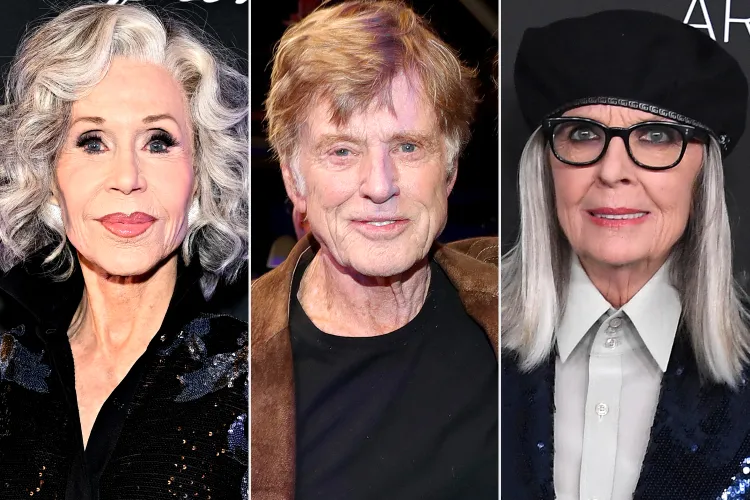
But even gratitude does not soften every blow. “There are mornings,” she admitted quietly, “when I reach for my phone to send someone a message and I remember — they’re gone.” That kind of grief does not feel cinematic. It feels ordinary, in a way audiences rarely imagine for famous people: the ache of habit interrupted.
Fonda has built support systems. She still works constantly, both in activism and on screen. “Grace and Frankie” introduced her to a new generation of viewers, giving her a joyful creative partnership with Lily Tomlin that she treasures. It is not the same as what she had with Redford or Hackman — it is something new, and at her age, she considers that a blessing. “To find new soul connections in your eighties,” she once said, “that’s a miracle.”
Still, she admits she sometimes feels like the keeper of memories that no one else remembers. Young actors meet her and speak of her films with reverence, but they do not feel the unspoken history of a shared cigarette backstage, the way Robert Redford laughed between takes, or the way Gene Hackman softened after a difficult scene. Those memories now live only in her. She carries them like fragile artifacts.
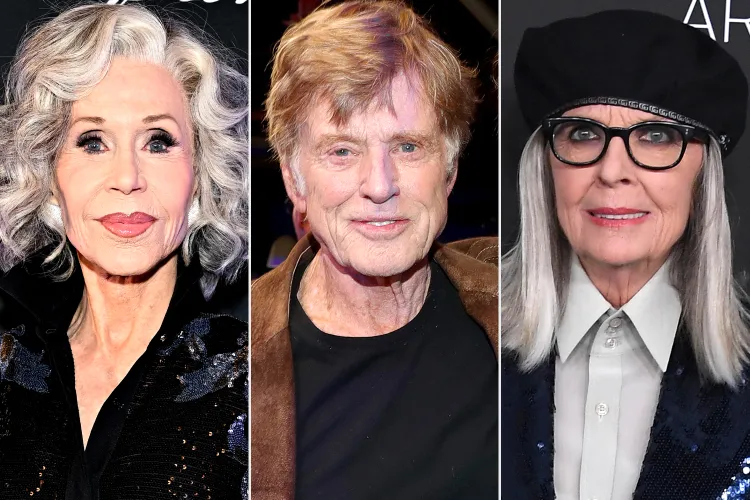
Hollywood changes quickly. Most of today’s rising stars did not grow up watching “Klute” or “The Candidate.” But Jane Fonda understands something younger generations are only beginning to grasp — that stardom does not protect anyone from the universal human experience of loss. She moves through press tours and red carpets with her public face, but behind that grace, there is a woman grieving, remembering, and enduring.
She is not asking for sympathy. She is offering testimony. She is saying something many people deeply fear — that aging means holding funerals inside yourself while smiling for photos. But she also insists that aging means holding joy more tightly. She still exercises. She still laughs loudly. She still calls her grandchildren “the true great love stories of my life.”
When asked what she misses most about the friends she’s lost, she answered without drama: “The conversations.” She misses the shorthand, the decades of shared understanding, the way a single glance with Robert Redford could hold a thousand untold stories. She misses the spark in Diane Keaton’s eyes when she said something wickedly funny. She misses Gene Hackman’s deep, grounded presence. She misses being surrounded by people who witnessed the same cultural storms and survived them alongside her.
But Jane Fonda is not finished. She talks about wanting to leave the world better than she found it — not only through acting, but through climate activism, women’s rights advocacy, and inspiring people to stay alive to their own purpose. She believes that when her time comes, she will have earned her peace.
For now, she walks forward alone in some ways, but never without meaning. Her grief is real, but so is her gratitude. She honors her friends not by retreating, but by continuing to show up — for her work, for her causes, and for the people still lucky enough to stand beside her.
“It’s been a tough year,” she says. But behind the heaviness is a quiet, resilient truth — Jane Fonda is still here. She is still telling stories, still teaching, still loving the memory of the people who shaped her world. And as long as she keeps speaking, their stories won’t disappear either.
